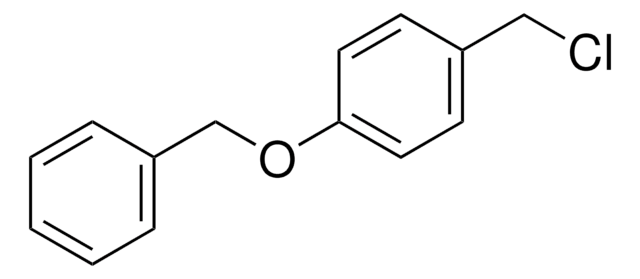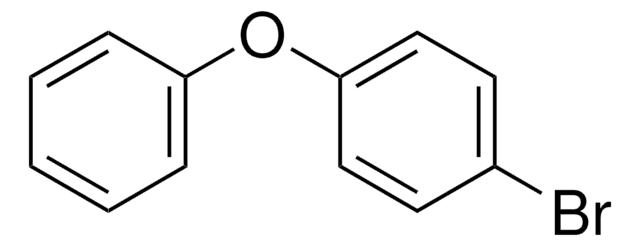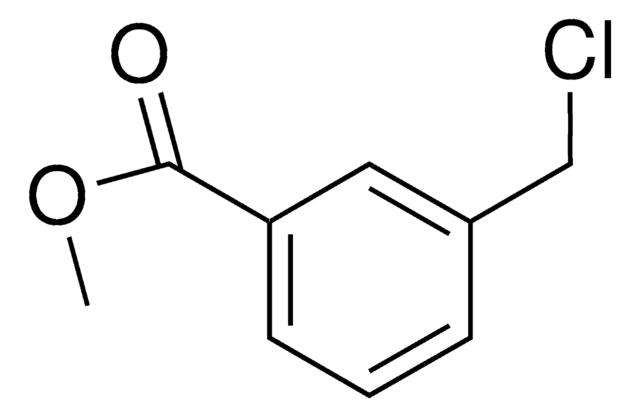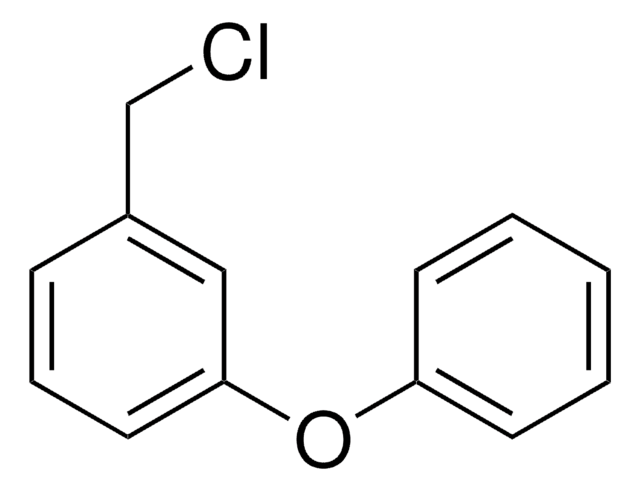432881
4-(Chloromethyl)phenyl acetate
98%
Synonyme(s) :
α-Chloro-p-cresol acetate, 4-Acetoxybenzyl chloride, p-(Chloromethyl)phenyl acetate, p-Acetoxybenzyl chloride
About This Item
Produits recommandés
Pureté
98%
Forme
liquid
Indice de réfraction
n20/D 1.53 (lit.)
Point d'ébullition
240 °C (lit.)
Densité
1.201 g/mL at 25 °C (lit.)
Groupe fonctionnel
chloro
ester
Chaîne SMILES
CC(=O)Oc1ccc(CCl)cc1
InChI
1S/C9H9ClO2/c1-7(11)12-9-4-2-8(6-10)3-5-9/h2-5H,6H2,1H3
Clé InChI
OKRCXSCDWKJWSW-UHFFFAOYSA-N
Application
Mention d'avertissement
Danger
Mentions de danger
Conseils de prudence
Classification des risques
Acute Tox. 4 Oral - Skin Corr. 1B - Skin Sens. 1
Code de la classe de stockage
8A - Combustible corrosive hazardous materials
Classe de danger pour l'eau (WGK)
WGK 3
Point d'éclair (°F)
235.4 °F - closed cup
Point d'éclair (°C)
113 °C - closed cup
Équipement de protection individuelle
Faceshields, Gloves, Goggles, type ABEK (EN14387) respirator filter
Faites votre choix parmi les versions les plus récentes :
Certificats d'analyse (COA)
Vous ne trouvez pas la bonne version ?
Si vous avez besoin d'une version particulière, vous pouvez rechercher un certificat spécifique par le numéro de lot.
Déjà en possession de ce produit ?
Retrouvez la documentation relative aux produits que vous avez récemment achetés dans la Bibliothèque de documents.
Notre équipe de scientifiques dispose d'une expérience dans tous les secteurs de la recherche, notamment en sciences de la vie, science des matériaux, synthèse chimique, chromatographie, analyse et dans de nombreux autres domaines..
Contacter notre Service technique










